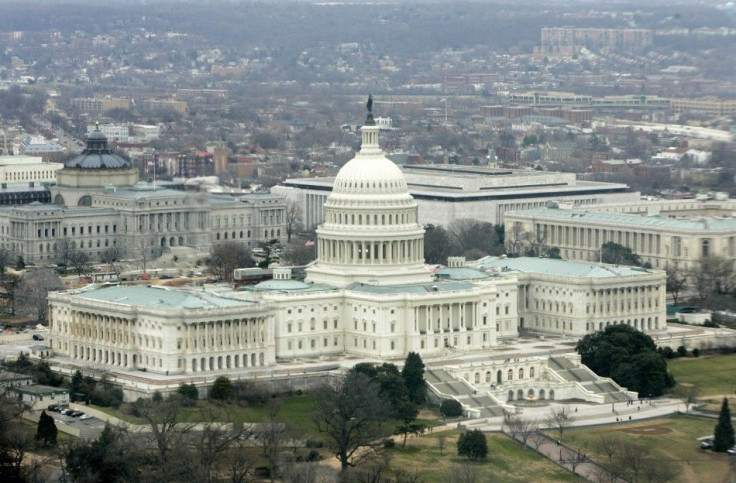Senate Expected to Pass Debt Deal Bill, Markets Relieved
ANALYSIS

The U.S. is one Senate vote away from averting a federal government default and toward taking a step in the direction of fiscal health: The Senate is expected to vote and pass the bipartisan debt deal legislation Tuesday around noon EDT, and President Barack Obama is expected to sign it quickly.
With Obama's signature, the U.S. Treasury Department will immediately have an additional $400 billion in borrowing authority -- effectively ending the debt deal/debt ceiling crisis. It will then be up to the U.S. Treasury to market the bonds: To say the least, the overwhelming sentiment is that there will still be ample institutional investors seeking to lend money to the U.S. government -- considered one of the lowest-risk, if not the lowest-risk investment class in the world.
The U.S. Treasury would receive an additional $500 billion in borrowing authority in the fall.
House Ends Fiscal Drama, Markets Relieved
Most of the fiscal drama to the debt deal saga ended Monday night when the House approved the debt deal bill, 269-211.
The vote further calmed U.S. and global stock and financial markets -- which had sold off last week, fearing a credit market-constraining U.S. government default.
Further, although Washington has been known to surprise lobbyists on votes, the conventional wisdom argues that the Senate will back the bill with at least 70 yes votes -- with possibly as many as 80 supporting the measure.
The compromise occurred after weeks of bitter rhetoric, angry debate, and brinkmanship between Democrats and Republicans -- the likes of which Capitol Hill has not seen perhaps since the 1999 impeachment and acquittal of President Bill Clinton.
Further, with U.S. unemployment above 9 percent and the economy growing at a tepid rate, American voters have becoming increasing frustrated and angry over the partisan attacks and refusals to compromise.
If history is any precedent, President Obama will bear much of the blame, because voters historically hold the nation's chief executive responsible for the economy's health. But voters' anger is being expressed toward Congressional Republicans, as well: American voters returned the GOP to power in the House in 2010 to create jobs. The party has not done it, instead concentrating its efforts on cutting federal spending and other issues secondary to job creation.
Human Drama Moves House Lawmakers
Further, although the legislative drama decreased Monday night after it became clear that the House would approved the debt deal bill by a large margin, the House offered drama of the real kind -- not just the artificial kind created by the heretofore polarized, rhetoric-spewing two political parties: U.S. Rep. Gabrielle Giffords, D-Ariz., returned to the House floor for the first time since being shot in January. Giffords voted for the debt deal bill.
The House -- both parties -- rose to its feet with jubilant applause and embraced Giffords. And more than a few eyes were moist in the chamber. In the end, it took the courage of Giffords to show the feuding Democrats and Republicans the difference between a problem and an inconvenience. The hurt that Giffords suffered was a problem; how to get two ideologically-opposed parties to agree to on a budget is a mere inconvenience.
The debt deal bill raises the U.S. debt ceiling by $2.1 trillion and cuts federal spending by up to $2.4 trillion,
Lawmakers have already largely agreed on caps to annual discretionary spending over 10 years. Officials from both parties say that would save about $1 trillion.
Another $1.4 trillion would be identified by a special 12-member, committee -- six Democrats, six Republicans -- appointed by Congress and have automatic "trigger cutbacks" -- including cuts to popular Medicare and U.S. Department of Defense programs -- if the committee did not undertake the additional "heavy lifting" to enact the second-stage cuts.
Overall CBO, in its official debt deal estimate, said the bill would reduce the budget deficit by $2.1 trillion to $2.3 trillion from 2012 to 2021.
The rationale for the "trigger cuts" argues that the 12-member committee is much more likely to make the cuts if the alternative is deep cuts to preferred programs: Medicare, in the case of the Democrats; Pentagon defense contracts, in the case of the Republicans.
Political/Public Policy Analysis: As they say inside the beltway, "nothing is achieved until everything is achieved," but the view from here argues that the Senate will quickly approve the debt deal bill -- but you can count on at least two or three extended speeches, probably by the Senate's majority leader and minority leader.
Based on the positive tone, and the research that points to at least 65 solid "yes" votes in the Senate, on a scale of 0 to 100 percent, the likelihood of a U.S. Government default remains 5 percent on Tuesday morning -- the same as Monday night.
After the vote and Obama's signature, Washington's attention will return to problem No. 1: the U.S.' high unemployment rate and how to point the economy toward monthly job creation above 150,000 per month -- the amount needed to lower unemployment.
© Copyright IBTimes 2024. All rights reserved.











